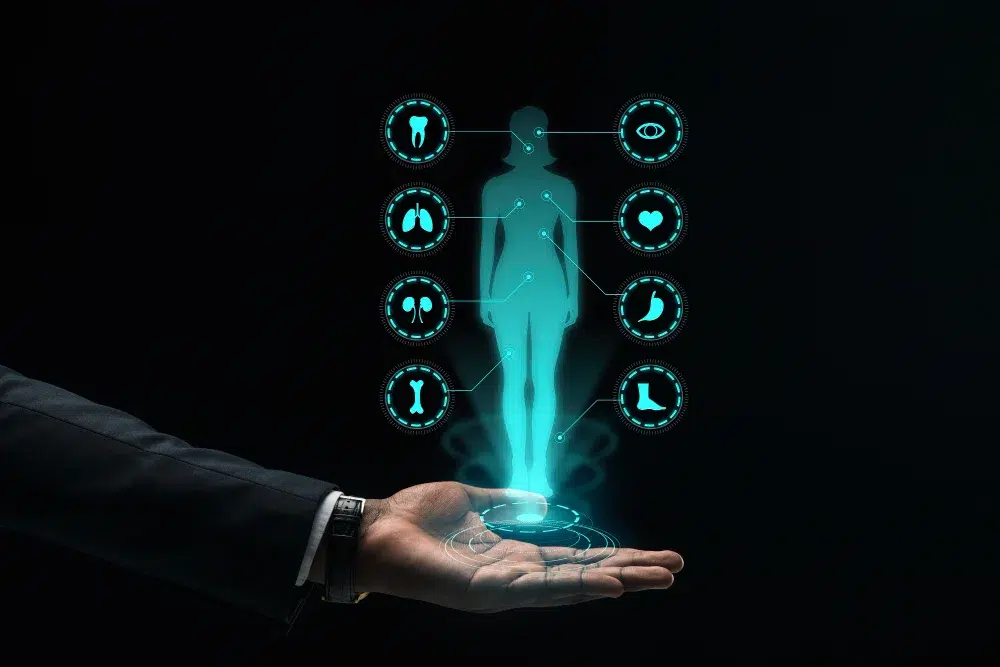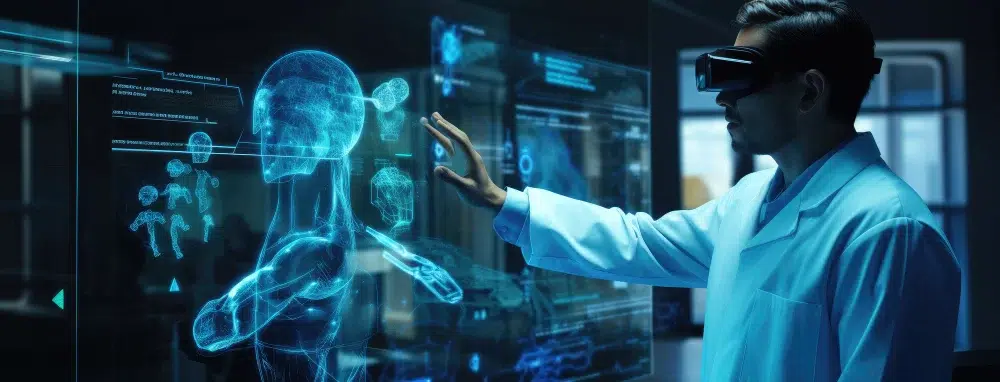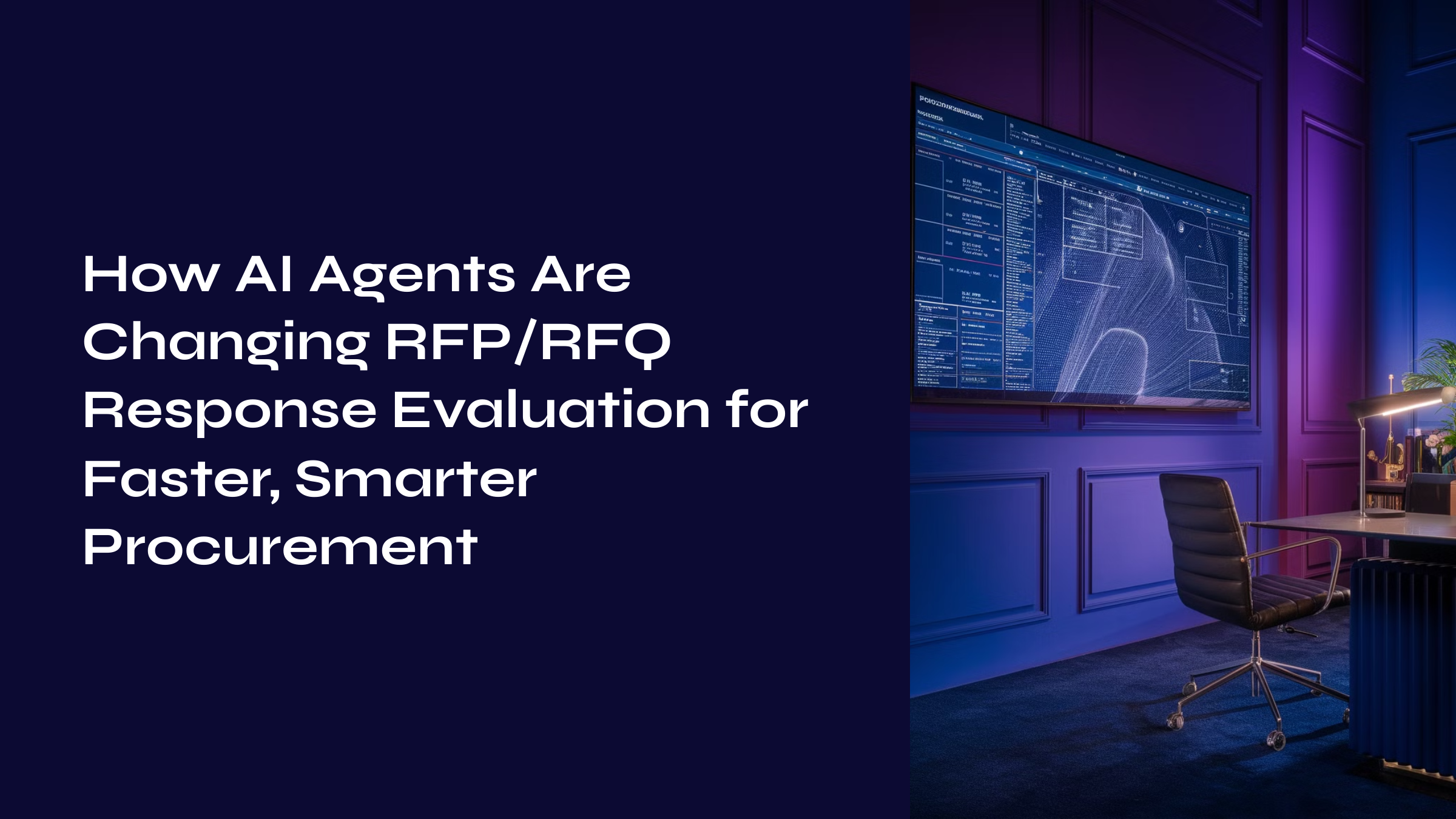AI in healthcare is not just a futuristic concept; it’s a transformative force reshaping how we diagnose, treat, and manage diseases. With AI algorithms learning from vast datasets, they can generate new insights, predict health trends, and provide personalized medical solutions.
For instance, AI-driven tools have demonstrated remarkable accuracy in medical imaging, outperforming traditional methods in detecting diseases like cancer at early stages.
Moreover, McKinsey estimates that the US healthcare system might benefit from an annual value of up to $100 billion from the integration of AI capabilities into big data strategies.
Additionally, according to a 2024 report by McKinsey, AI applications in healthcare could generate up to $100 billion annually in savings for the industry.
As healthcare providers grapple with increasing demands and limited resources, the integration of AI in healthcare offers a pathway to more efficient and effective care. This blog will explore the various applications, benefits, and future trends of AI in healthcare.
What is AI in Healthcare?

Artificial Intelligence or AI in healthcare refers to using advanced algorithms and machine learning models to analyze complex medical data and assist in clinical decision-making.
By processing vast amounts of information from various sources, AI can identify patterns and insights that may not be immediately apparent to human practitioners. As a result, this enables:
- More accurate diagnoses,
- Personalized treatment plans, and
- Proactive health management.
AI technologies encompass a range of applications. This includes natural language processing (NLP) that helps understand and manage patient records and computer vision algorithms that enhance medical imaging analysis.
For example, AI-driven tools can scan MRI or CT images to detect anomalies like tumors or fractures with higher precision and speed than traditional methods. Furthermore, AI-powered predictive analytics can forecast disease outbreaks, optimize hospital workflows, and even predict patient outcomes based on historical data.
Applications of Generative AI in Healthcare

Healthcare is significantly impacted by AI. These are a few ways AI is being used in healthcare.
- Medical Imaging and Diagnostics
AI in healthcare furnishes hospitals with image recognition that is revolutionizing the field of medical imaging and diagnostics. By leveraging deep learning algorithms, AI systems can analyze medical images such as X-rays, MRIs, and CT scans with unprecedented accuracy and speed.
These AI tools can detect diseases like cancer in their early stages, identify fractures, and recognize other anomalies that the human eye might miss.
For instance, AI-powered diagnostic systems have been shown to detect breast cancer in mammograms up to 30% faster than traditional methods.
- Personalized Medicine
Personalized medicine is another transformative application of AI in healthcare. AI-driven drug discovery and development streamline the process of identifying new treatments by analyzing vast datasets of biological information. This accelerates the development of effective medications and reduces costs.
Additionally, AI enables the tailoring of treatments based on individual genetic information, leading to more precise and effective therapies. For example, AI algorithms can analyze a patient’s genetic makeup to predict how they will respond to certain medications.
Thus, allowing for the customization of treatment plans that minimize side effects and maximize efficacy.
- Virtual Health Assistants
Virtual health assistants, powered by AI in healthcare, are improving patient support and engagement. These AI chatbots provide 24/7 assistance, answering health-related queries, scheduling appointments, and offering preliminary diagnoses based on reported symptoms.
This not only improves patient access to medical information but also reduces the burden on healthcare providers. For instance, an AI chatbot can help patients manage chronic conditions by reminding them to take their medication, monitoring their symptoms, and providing tailored health advice.
- Predictive Analytics
Predictive analytics is another powerful application of AI in healthcare, enabling the prediction of patient outcomes and disease outbreaks. By analyzing historical data, AI models can identify patterns and trends that help healthcare providers anticipate future events.
For example, predictive analytics can forecast which patients are at risk of developing complications after surgery, allowing for proactive interventions. Moreover, AI-driven predictive models can monitor and analyze real-time data to predict disease outbreaks.
Benefits of Generative AI in Healthcare

As we now know the applications of AI in healthcare, Let’s explore some of the key advantages AI brings to the healthcare sector.
- Improved Accuracy in Diagnostics
Generative AI’s ability to process and analyze vast amounts of data with high precision leads to improved accuracy and efficiency in diagnostics. AI in healthcare can quickly scan and interpret:
- Medical images,
- Lab results,
- Patient records.
Moreover, it also identifies patterns and anomalies that may be missed by human eyes.
- Personalized Treatment Plans
AI facilitates the development of personalized treatment plans by analyzing individual patient data, including genetic information, medical history, and lifestyle factors.
This enables healthcare providers to tailor treatments to each patient’s unique needs. As a result, this increases the effectiveness of interventions and minimizes potential side effects.
- Reduction in Healthcare Costs
The integration of AI in healthcare significantly reduces costs and optimizes resource utilization. AI systems can streamline administrative processes, such as scheduling, billing, and patient record management.
Furthermore, predictive analytics can also help healthcare facilities manage their resources more efficiently by forecasting patient admissions and optimizing staff schedules.
- Accelerated Research
AI in healthcare accelerates the research and development of new treatments by analyzing complex biological data and identifying potential therapeutic targets.
In drug discovery, AI can rapidly screen vast libraries of chemical compounds to find promising candidates for new medications. As a result, this reduces the time and cost involved in bringing new drugs to market.
Future Trends of AI in Healthcare

The future of healthcare will see a seamless integration of AI with the Internet of Things (IoT) and wearable technology. Wearable devices, such as smartwatches and fitness trackers, will continuously monitor health metrics like heart rate, blood pressure, and activity levels.
Moreover, AI-driven robotics is set to revolutionize surgical procedures with continuous advancements enhancing precision, safety, and outcomes. Robotic systems powered by AI can perform complex surgeries with minimal invasiveness, reducing recovery times and the risk of complications.
Over the next decade, AI will become an integral part of healthcare, transforming various aspects of patient care and medical practice. We can expect AI to advance personalized medicine further, with treatments tailored even more precisely to individual genetic profiles.
How advansappz Can Revolutionize Healthcare with AI

advansappz stands at the forefront of technological innovation, leveraging its extensive expertise in AI to create cutting-edge healthcare solutions.
Their solutions are designed to enhance diagnostic accuracy, streamline operations, and improve patient outcomes. From advanced medical imaging analysis to predictive analytics, advansappz delivers AI-driven tools that address the unique challenges faced by healthcare providers.
Customized AI Solutions for Healthcare Providers
The team of advansappz understands that each healthcare provider has distinct needs and challenges. That’s why they offer customized AI solutions tailored to meet the specific requirements of hospitals, clinics, and other healthcare facilities.
Whether it’s developing a personalized medicine program or enhancing virtual health assistant functionalities, advansappz ensures that its AI solutions are aligned with your organizational goals.
Advantages of Partnering with advansappz for AI Integration
Partnering with advansappz for AI integration brings numerous advantages to healthcare providers.
- Firstly, the proven track record in delivering successful AI projects ensures that you receive reliable and effective solutions.
- Additionally, by incorporating their AI technologies, healthcare providers can achieve higher diagnostic accuracy, reduce operational costs, and improve patient satisfaction.
- Additionally, the continuous support and expertise in navigating the complexities of AI implementation mean that your organization can adapt to evolving technological advancements with ease.
- Lastly, with advansappz, you gain a trusted partner dedicated to driving innovation and excellence in healthcare through the strategic use of AI.
Conclusion
In conclusion, the integration of AI in healthcare presents an unprecedented opportunity to enhance patient care, streamline operations, and drive medical innovation. Artificial Intelligence has the potential to transform various aspects of healthcare, from diagnostics to treatment and patient management.
Moreover, AI in healthcare is not just about technology; it’s about improving the overall patient experience.
Additionally, by partnering with advansappz, healthcare organizations can leverage cutting-edge AI technologies to improve:
- Diagnostic accuracy,
- Personalize treatments, and
- Optimize resources
Thus, ultimately leading to better patient outcomes and a more efficient healthcare system.
FAQs
1. What is generative AI in healthcare?
Generative AI in healthcare involves using advanced algorithms to analyze large amounts of medical data and create new insights or predictions. For example, it can help doctors by interpreting medical images to detect diseases early.
2. How does AI improve patient care?
AI in healthcare improves patient care by making diagnoses more accurate and personalized. It can analyze a patient’s medical history, genetic information, and current health data to suggest the best treatment plans.
3. Can AI in healthcare reduce costs?
Yes, AI in healthcare can reduce costs by streamlining administrative tasks, improving diagnostic accuracy, and optimizing resource allocation.
4. What are some ethical considerations with AI in healthcare?
Ethical considerations with AI in healthcare include ensuring patient data privacy, avoiding biases in AI algorithms, and making sure AI decisions are transparent and explainable. That’s why having a trusted integration partner like advansappz is crucial.
5. How can healthcare providers start integrating AI?
Healthcare providers can start integrating AI by partnering with experienced IT companies like advansappz. They offer customized AI solutions that fit the specific needs of the healthcare provider, such as enhancing diagnostic tools, improving patient management systems, and providing predictive analytics for better resource planning.
















